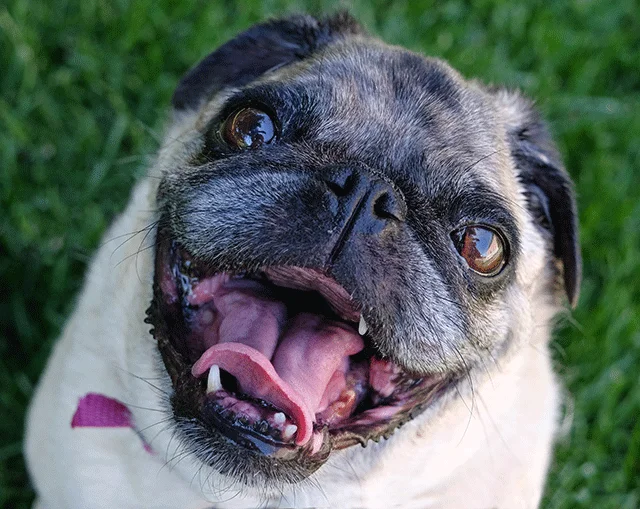
We know. There’s a month for everything. But, we’d be remiss if we didn’t highlight National Pet Dental Health Month because your pet’s teeth are an essential part of their overall health and wellbeing. Their pearly whites, just like their people, need regular attention, and there’s no better time to brush up on your furry friend’s oral health!
If the thought of brushing your pet’s teeth makes your eyes twitch, you’re not alone. Eighty-one percent of us (and that number doesn’t come from any formal scientific study, so we’ll call it a guess) don’t brush our pet’s teeth. Let’s take a look at the reasons why oral care is a vital part of your pet’s healthcare routine and see if we can decrease that percentage because it’s really no laughing matter.
Mouth + teeth + gums (can) = dental disease when left untreated. The consequences of neglect can cause bad breath, painful chewing and tooth discoloration and loss in cats and dogs. When bacteria get under the gum line, it can lead to inflammation and bleeding and can be detrimental to the rest of the body, including internal organs, such as the heart, kidney and liver. Scary, right? But it doesn’t have to be.
What can you do to help support your companion’s dental health? Pet owners can provide a well-balanced, high quality food for their pet. Certain prescription and non-prescription foods target the prevention and minimization of dental diseases, such as Hills® Prescription Diet® t/d®, which helps to break away excess buildup on the teeth.
Special cat and dog toothbrushes are available at many pet stores and veterinary offices, as well as toothpaste formulated especially for them in yummy pet-friendly flavors like seafood or poultry. Your minty fresh toothpaste is not safe for pets, even though you might like a whiff of that menthol scent during snuggle time. In the ideal world, pet owners should brush their pets’ teeth daily. Many pets can be trained to accept a toothbrush and are excited to get their teeth brushed. No kidding.
Pets should receive regular veterinary exams, and owners should follow the veterinarian’s advice for dental cleanings. The only way to remove plaque and tartar from teeth is by having a professional dental cleaning. It’s also an excellent opportunity for the doctor to assess the health of your pet’s mouth, including their tongue, gums and lips.
Let’s not forget about our equine friends. They also need regular dental care. Because horses’ teeth grow continuously throughout their lives, uneven wear can lead to sharp points and edges that cause pain and difficulty chewing. Ouch! Floating is the process in which horses’ teeth are smoothed and contoured. It has nothing to do with water—a “float” is actually a type of file used in the process. Most horses need to have their teeth floated at least once per year, including a general oral examination.
Let’s follow the offense is the best defense philosophy, and get brushing!
Visit ddfl.org to see adoptable pets and find a tooth-brushing buddy today!
